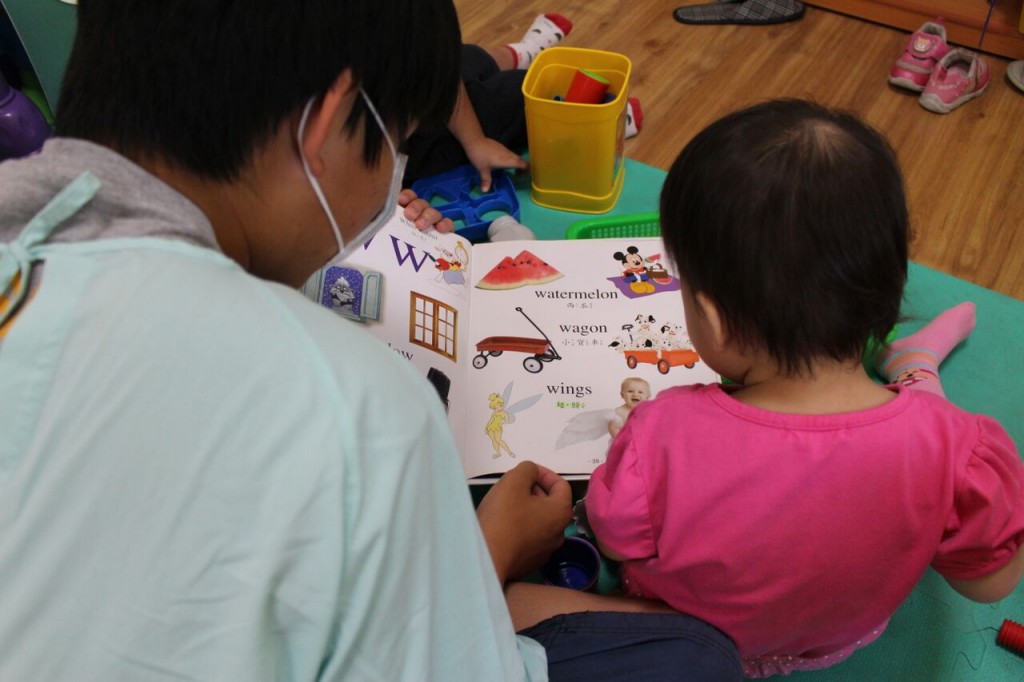Bing今年夏天回善牧台南嬰兒之家擔任志工,照顧與多年前的他有著相同命運的孩子。
(此文為多年前善牧媒合到國外收養家庭的孩子Bing所寫。今年Bing回台到善牧台南嬰兒之家擔任志工,並和生母共同觀賞了《生命的圓圈》紀錄片試片,寫下了他的感想……)
對我來說,世界上最討厭的一個問題莫過於在童年時期最常被問到的:「你知道你真正的媽媽是誰嗎?」
儘管要承受這個問題背後的無知與艱辛,現在的我總算能理解為什麼別人這樣問我,而我想如果我說我不曾問過自己這樣的問題,是因為這不是我最想知道的事情,那其實是不誠實的。
雖然總是不情願地忍受別人這樣問,但我非常幸運的能這樣去回答:「是的,你指的是哪一位呢?」
在我的認知中,我有兩個真正的媽媽,她們是兩個截然不同的人,在母親的角色上各自有重要的地位。我有一個生我的媽媽,和一個從我嬰兒時期就養育我的媽媽。儘管我的養母沒有親自生育我,但她給予我的愛與照顧是她所有的,而這正是一個真正母親所做的。

1998年我出生於在台南一個無法照顧我的家庭,當我的生母決定把我生下來時,她也做出了一個重大的決定,就是將我送到善牧基金會的露晞服務中心出養。我相當地幸運,在那裡有熱心的保母把我照顧得很好,讓我能健康地到美國生活。我很難想像做出這無私的決定需要有多大的勇氣,只為了讓我能有一個幸福、美滿的人生。這其實是對於出養基本的認知與了解,然而卻有很多人將生母這樣的行為描述成「抛棄」自己的孩子,這是很不正確的。我很幸運能與原生家庭維持關係,但不幸地,不是每一個人都能有這樣的關係。
《生命的圓圈》這部紀錄片中所紀錄的過程有點類似我曾經歷的經驗,第一個部分它著重在一群媽媽敘述她們決定將孩子出養的過程,許多台灣的母親在非婚狀況下懷孕生子,不僅遭到另一半的遺棄,也被整個社會所排斥。當我知道我的生母在懷我時也曾遭遇到類似的情況,特別是她也看到這群女孩在面對相同的處境時,不論是她還是我都感到相當地難過。紀錄片的第二部分則是有一大部分圍繞在收養家庭上,談他們的生活以及孩子長大尋親的歷程……看到這個部分,我真的十分感謝自己的過程是如此幸運,我有一個很棒的收養家庭,也找到我的原生家庭。
在這部紀錄片中,我體認到一個很重要的事,同時我自己本身也想好好記住的,那就是對收養議題的覺察。「覺察」這個字經常被拿出來說,卻常常用在不正確的地方。覺察是個在某個議題或某件事上的單純概念,在收養議題上,這是每一個人需要覺察的事。這是一件極重要的事,當一個未婚媽媽陷入如同紀錄片中女孩們的情況時,她們可以知道如何去尋求幫助,不用藉由自殺、丟棄孩子來逃避。在我來看,這部紀錄片想讓大家了解這些生命是有機會能有一個美好的未來。
The most ugly question I know regarding my childhood is the one I am most often asked.
“Do you know your real mom?”
Although ignorant and difficult to stomach for me, I actually find this question rather understandable, and I think it would be dishonest to claim that I would not pose this question if I did not have so much prior knowledge on this issue.
Although often reluctant to tolerate this question, I am extremely lucky in being able to respond to it with
“Yes, which one?”
In my view, I have two real mothers. There are two distinct but independently important aspects to motherhood. I have one mother that gave birth to me, and one that has taken care of me since infancy. Despite not birthing me, my adopted mother IS as real mother as there is: she has cared for me and loved me as if she had, and that is what motherhood is.
In 1998, I was born in Tainan, Taiwan to a family that simply did not have the means to care for me. While my birthmother was still pregnant with me, she made the fateful decision to put me up for adoption. I went to St. Lucy’s, where I was fortunate enough to receive excellent care from passionate caretakers, and have gone on to lead a healthy life in the United States. I cannot imagine the bravery it required to make such an incredibly selfless decision, one that would guarantee me a happy, secure lifestyle. This is why, with even the most rudimentary understanding of adoption, it is incorrect to characterize my birthmother’s action as “abandonment,” as it so often is by the unenlightened. I am also fortunate in still maintaining a relationship with my birth family, as unfortunately, many of these relationships do not come to be.
The Circle of Life (生命的圓圈) documents adoptions similar to the one which I went through. The first part of the movie focuses heavily on the situations which lead mothers to decide to put their child up for adoption. Many Taiwanese mothers who give birth out of wedlock find themselves abandoned by their husbands and ostracized from society. Knowing my birth mother faced similar issues during her pregnancy with me, it was really sad for both me, and her to see women stuck in such awfully similar situations. The second part of the documentary centers largely around the adoptive family, their lives, and the adopted children’s subsequent quests to find their birth parents. This section made me really appreciate the way in which my adoption was facilitated, I got a great adoptive family and a lasting relationship with my birth family.
I feel the single most important aspect of this documentary is something which I also hold dearly to myself, raising awareness for adoption. “Awareness” is a word that gets tossed around a lot, and is often used incorrectly. Awareness is simple knowledge of an issue or thing, and for adoption, that is all that the public really needs. It is of the utmost importance that mothers in tough situations such as the ones seen in the documentary know that they can go for help, that they don’t need to resort to suicide or to throw a baby away in order to escape the ordeal. In my view, promoting the futures of those kids is where the real potential in this documentary lies.

No Comments